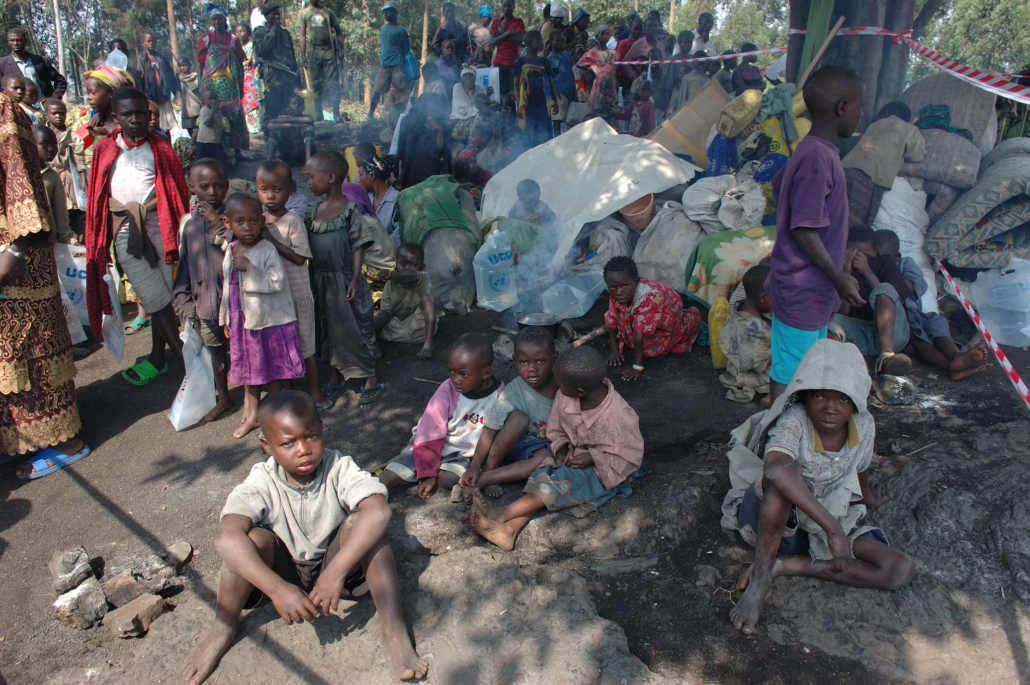Human Rights Abuses in the DRC for Mining Gains

The mining industry proves essential for the Democratic Republic of Congo’s (DRC) economy. The DRC boasts 70% of the world’s cobalt, roughly 3.5 million metric tons of cobalt reserves. This amount has attracted foreign investors who see the potential of the resources, but it has also led to unfortunate human rights abuses in the DRC.
Though foreign direct investment should be beneficial to any nation, historically, investment in the mining industry has had a negative impact on the DRC for a number of reasons. These reasons include human rights abuses in the DRC as the profit-seeking companies are forcefully displacing Congolese people from their homes. Action on the part of the Congolese government is lacking as human rights abuses in the DRC continue due to mining activities. The Borgen Project spoke with Marie Mujinga, a Masisi, North Kivu resident, who witnessed first-hand these human rights abuses in the DRC taking place around the mines.
Companies Exploiting and Violating Rights
International companies that have had or still have a significant stake in the DRC’s mining industry include the Compagnie Miniere de Musonoie Global SAS (COMMUS). China owns 72% of the COMMUS company shares and the DRC owns the other 28%. Then, there is Metalkol SA, owned fully by Luxemburg. Canada owns 39.6% of Kamoa Copper SA while China owns 39.6% and the DRC owns 20%. Various global companies have taken their place in the DRC’s mining industry, but this has come with consequences.
In 2022, in two separate instances, Amnesty International and the Initiative for Good Governance and Human Rights (IBGDH) interviewed 133 people at six mining projects in Kolwezi. These individuals reported being forcibly evicted and threatened to leave their homes without sufficient money to relocate to new locations.
Another example is COMMUS’ involvement in the DRC. Since 2015, COMMUS has demolished various homes in Kolezwi, where 39,000 people live for mining purposes. COMMUS claims it gave adequate compensation packages above market prices, but the displaced citizens disagree. The Vice President of Zijin Mining Group, the Chinese company involved in COMMUS, wrote a letter to Mark Dummett and Donat Kambola, activists from Amnesty International and IBGDH, in May 2023. The letter said COMMUS is “committed to mining for a better society” and “to promote the protection of human rights and the wellbeing of the people.” The stories of Congolese citizens paint a different picture, as mining companies have violated their rights in pursuit of mining goals.
Child Labor
Child labor is also a pressing issue in the mining industry. Masisi resident Marie Mujinga describes the human rights abuses she has witnessed. Masisi is home to the Rubaya mines, the largest producer of coltan, a mineral, in the country. The DRC also is the biggest producer of coltan globally. Coltan is used in mobile phones, meaning this area attracts many foreign investors, such as technology companies.
Mujinga says that, in Masisi, international forces and companies, local gangs and neighboring countries like Rwanda and Uganda have involved themselves in mining activities. “They’ve used small children as [young] as five or six to go into the mines to get gold, titanium and coltan as they know children are cheap labor.”
Impoverished children have no choice because their little money from this adds to the household income. Mujinga says she knows many kids who went underground and died due to the dangerous working conditions. For example, Mujinga noted, “A lot of these mines have water inside of them. The children have to go in dirty water inside the mining caves barefooted and unprotected. This is where they catch bacterial-related diseases such as typhoid, cholera and diarrhea.” Not only children but also adults would go through the same ordeal, Mujinga adds.
Preventative Measures
People internationally have noticed the suffering and abuses of children and others that mining has exploited. In July 2023, a bill was introduced into the U.S. House to ban “imported products containing minerals critical to electric vehicle batteries but mined through child labor and other abusive conditions in Congo,” AP News reported. “The measure also would require the president to identify and impose sanctions, including visa and transaction prohibitions, on foreign actors who facilitate and exploit child labor in Congo,” AP News says.
This step is significant and will hopefully help promote safer methods of mining. The U.S. is a big market that companies may lose if they continue using exploitative methods. This change can also influence other countries to take similar actions. In the U.K., Lord Goldsmith of Richmond Park, while Minister of State for Overseas Territories, Commonwealth, Energy, Climate and Environment at the Foreign, Commonwealth & Development Office, said in 2022 that the U.K. is working with international partners to help prevent illicit mining
Many parties are still trying to get the most out of DRC’s natural mineral resources regardless of who gets hurt. International companies are not the only organizations involved in the abuses of miners and children. Internal forces have been mining for their gain at the expense of their people. This policy creates further issues in trying to help prevent human rights abuses for mining from internal and external bodies. International bodies have tried to highlight theming-related human rights issues, with Amnesty International and IBGDH spotlighting unethical and exploitative companies working in the DRC. Similar human rights abuses can be prevented on a larger scale if such work continues.
– Christelle Wealth-Mukendi
Photo: Flickr
